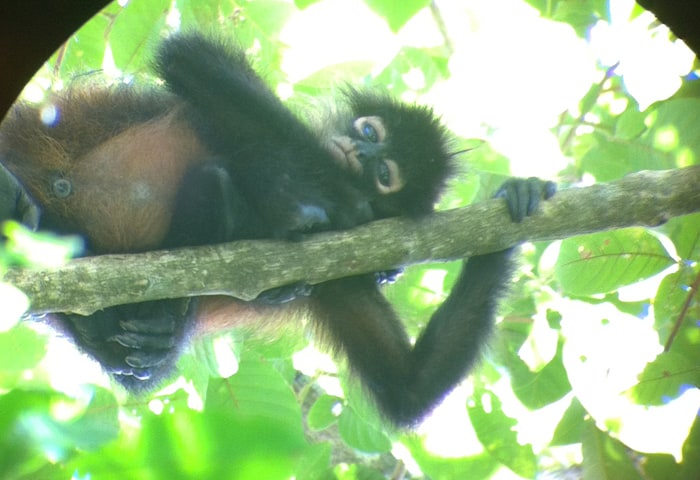In a recent incident captured on social media, a spider monkey (Ateles geoffroyi) made headlines by entering a store in the center of La Cruz, Guanacaste, and snatching a banana. The amusing video quickly went viral, sparking varied reactions from amused spectators to concerns about the broader issue of wildlife-human interactions.
Local authorities, particularly the Guanacaste Conservation Area (ACG), are taking a proactive stance to address the incident and prevent similar occurrences. The ACG has pledged to implement necessary measures to mitigate negative interactions between wildlife, residents, and commercial establishments near the central park and tourist viewpoints in the community.
The first step in their initiative is a plea to the residents of La Cruz to refrain from feeding wildlife such as monkeys, pizotes, garrobos, birds, and others frequenting the area. The ACG emphasizes the potential threats this practice poses to public health, highlighting the risk of disease transmission between animals and humans, as well as the possibility of attacks on residents leading to injuries requiring medical attention.
The detrimental impact of feeding wildlife extends beyond immediate health concerns. The ACG points out that providing food disrupts natural behaviors and ecosystems, causing issues such as nutritional imbalances, loss of fur and teeth, malnutrition, obesity, and even cancer in animals. Additionally, the disruption of the food chain interferes with the essential ecological functions of these creatures, affecting seed dispersal, insect control, pollination, and other critical roles in maintaining healthy ecosystems.
Dr. Isabel Hagnauer, a veterinarian from the Wildlife-Zooave rescue center, shed light on the incident, suggesting that the spider monkey may have become accustomed to human feeding, leading it to boldly enter the store. She emphasized that while fruits are part of their diet, bananas, in particular, can be harmful, potentially causing sickness in the animals.
Spider monkeys, like other wildlife species in the region, are already at risk of extinction. Authorities hope that by addressing the issue of human-induced feeding, they can protect these creatures and ensure the continued health of the ecosystems they inhabit. The incident serves as a reminder of the delicate balance required in preserving the coexistence of wildlife and human communities.






